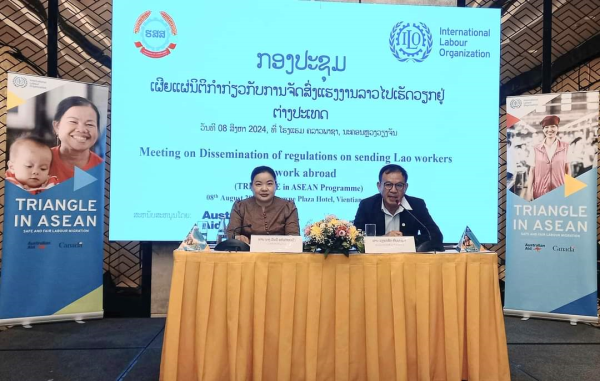KPL
The Lao government, in collaboration with international and business partners, held a session last Friday in Vientiane to disseminate legislation on the export of Lao workers abroad.

(KPL) The Lao government, in collaboration with international and business partners, held a session last Friday in Vientiane to disseminate legislation on the export of Lao workers abroad.
The session was attended by key figures, including Mrs. Vanny Keoxayavong, Deputy Director of the Employment Department of the Ministry of Labour and Social Welfare, Mr. Viengprasith Thipphasouda from the International Labour Organization for the Lao PDR, and representatives from relevant sectors.
The Lao PDR government is committed to promoting employment opportunities for Lao workers both domestically and internationally. Since the enactment of the Decree on Sending Lao Workers Abroad in 2002, jobseekers have gained access to international labour markets, helping them generate income and develop valuable skills.
This policy has garnered widespread societal recognition and has significantly contributed to improving overseas job placements.
The deployment of Lao workers is managed by state technical units and authorized employment companies. The number of workers going abroad has steadily increased each year, from 49,441 in 2017 to 120,360 in 2018, with more than 60,000 so far this year. Currently, over 400,000 Lao workers are employed abroad, remitting approximately US$52.1 million monthly, or US$625.3 million annually.
The demand for overseas employment has risen significantly. Initially focused on Thailand, the Ministry of Labour and Social Welfare has now established memoranda of understanding to send workers to Thailand, Japan, and the Republic of Korea, with other ASEAN member countries also exploring similar opportunities.
To address evolving needs, the Ministry has revised the law on job placement, updated the decree on dispatching Lao workers, and enhanced regulations governing employment service enterprises to ensure a comprehensive and adaptable legal framework.
KPL